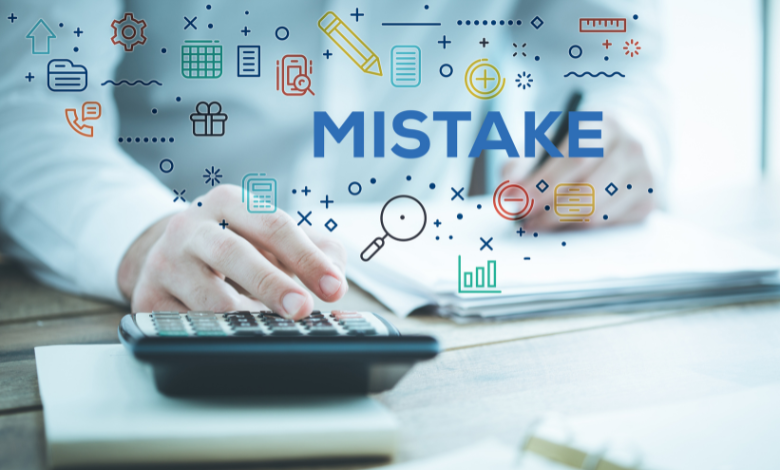There are many advantages and disadvantages of being a small business owner. On one hand, being a small business owner gives you the opportunity to be your own boss and have control over your own destiny. You also have the potential to make a lot of money if your business is successful. On the other hand, being a small business owner can also be very risky. If your business fails, you could lose everything you’ve put into it.
So, what are the pros and cons of being a small business owner? Let’s take a look at some of the advantages and disadvantages:
Advantages:
1. You’re in control: As a small business owner, you’re in control of your own destiny. You get to decide what products or services you offer, how you market and sell them, and how you run your business overall.
2. You can be flexible: Small businesses often have the advantage of being able to be more flexible than larger businesses. This means that you can respond quickly to changes in the marketplace or to your customers’ needs.
3. You can make a lot of money: If your small business is successful, you can make a lot of money. This can provide you with financial security and the ability to live the lifestyle you want.
4. You can be your own boss: One of the biggest advantages of being a small business owner is that you’re your own boss. You get to make all the decisions about your business, and you don’t have to answer to anyone else.
5. You can have a big impact: Small businesses can often have a big impact on their communities. This is because they provide goods and services that people need and because they often create jobs.

Disadvantages:
1. It’s risky: One of the biggest disadvantages of being a small business owner is that it’s risky. If your business fails, you could lose everything you’ve put into it.
2. You have to work hard: Another disadvantage of being a small business owner is that you have to work hard. You’ll often have to put in long hours, and you may not have a lot of free time.
3. You have to wear many hats: As a small business owner, you’ll likely have to wear many different hats. This means that you’ll be responsible for everything from marketing to accounting to customer service.
4. You may not have a lot of help: When you’re first starting out, you may not have a lot of help. This can make it difficult to get your business off the ground.
5. It’s competitive: The small business world is often very competitive. This means that you’ll need to work hard to stand out from the crowd.

Why should I own a small business?
5 reasons – successful business owners, business success
1. You’re in control: As a small business owner, you’re in control of your own destiny. You get to decide what products or services you offer, how you market and sell them, and how you run your business overall.
2. You can be flexible: Small businesses often have the advantage of being able to be more flexible than larger businesses. This means that you can respond quickly to changes in the marketplace or to your customers’ needs.
3. You can make a lot of money: If your small business is successful, you can make a lot of money. This can provide you with financial security and the ability to live the lifestyle you want.
4. You can be your own boss: One of the biggest advantages of being a small business owner is that you’re your own boss. You get to make all the decisions about your business, and you don’t have to answer to anyone else.
5. You can have a big impact: Small businesses can often have a big impact on their communities. This is because they provide goods and services that people need and because they often create jobs.
What is successful small business?
There are no defined definitions of the success of businesses. The business community is divided on different aspects. According to a 2018 analysis of how customers and banks measure success of businesses, the following factors influence these factors and small business owners often have similar personalities. The ability to maintain a long-term perspective, being decisive, having integrity and being passionate are important factors. Other important factors for success were rated as being able to hire the right people, having a clear vision and mission and always looking for opportunities to improve.
What personality traits do small business owners have?
The following is a list of some common personality traits that small business owners have:
• They are risk-takers: Small business owners are often willing to take risks, which can lead to success or failure.
• They are innovative: Small business owners need to be able to come up with new ideas and find new ways to do things.
• They are passionate: Small business owners are often very passionate about their businesses and what they do.
• They are determined: Small business owners often have to be very determined to succeed. They may face many challenges and obstacles, but they continue to push forward.
• They are resourceful: Small business owners need to be able to find resources and use them effectively.
• They are adaptable: Small business owners need to be able to adapt to changes, both in the marketplace and in their businesses.

What are some of the biggest challenges small businesses face?
There are many challenges that small businesses face, but some of the most common include:
• Finding customers: One of the biggest challenges for small businesses is finding customers. They may need to find new ways to market their businesses and reach potential customers.
• Managing finances: Small businesses often have to be very careful with their finances. They may need to track their expenses closely and make sure they are not overspending.
• Hiring employees: Small businesses may need to hire employees, but they may not have the resources to pay them well or provide them with benefits.
• Dealing with regulation: Small businesses may need to comply with government regulations, which can be costly and time-consuming.
What are some tips for small business owners?
There are many tips that small business owners can follow to help them be successful. Some of these include:
• Finding a niche: Small businesses need to find a way to stand out from the competition. They may need to specialize in a certain area or offer unique products and services.
• Knowing your customers: Small businesses need to know who their customers are and what they want. They may need to conduct market research to find this out.
• Planning for success: Small businesses need to have a plan for how they will achieve their goals. They need to set realistic targets and create a roadmap for how they will reach them.
• Being organized: Small businesses need to be well-organized to be successful. They need to keep track of their finances, inventory, and customers.
• Being flexible: Small businesses need to be flexible and willing to change as the market or their businesses change.
What are some common mistakes small businesses make?
There are many mistakes that small businesses make, but some of the most common include:
• Not having a plan: Many small businesses do not have a plan or a strategy for how they will achieve their goals. This can lead to them making decisions without thinking about the long-term consequences.
• Not knowing their customers: Small businesses need to know who their target market is and what they want. Otherwise, they will not be able to sell them their products or services.
• Over-expanding: Small businesses may try to grow too quickly and take on too much. This can lead to them not being able to handle their growth and eventually failing.
• Not being flexible: Small businesses need to be able to adapt to changes in the marketplace or their businesses. If they are not flexible, they may become outdated or irrelevant.

What are some common challenges small businesses face when it comes to marketing?
There are many challenges that small businesses face when it comes to marketing, but some of the most common include:
• Finding their target market: Small businesses need to identify who their target market is and what they want. Otherwise, they will not be able to sell them their products or services.
• Creating a marketing plan: Small businesses need to create a marketing plan that outlines how they will reach their target market. Without a plan, they may not be able to effectively market their business.
• Getting the word out: Small businesses need to find ways to get their name and products/services out to their target market. They may need to use advertising, public relations, or social media.
• Measuring results: Small businesses need to measure the results of their marketing efforts to see if they are effective. Otherwise, they may be wasting their time and money on marketing that is not working.
What are some common challenges small businesses face when it comes to sales?
There are many challenges that small businesses face when it comes to sales, but some of the most common include:
• Identifying their target market: Small businesses need to identify who their target market is and what they want. Otherwise, they will not be able to sell them their products or services.
• Creating a sales plan: Small businesses need to create a sales plan that outlines how they will reach their target market. Without a plan, they may not be able to effectively sell their business.
• Finding leads: Small businesses need to find potential customers who may be interested in their products or services. They may need to use marketing or advertising to reach these leads.
• Closing deals: Small businesses need to close deals and make sales. This can be a challenge if they do not have a good sales plan or the right skills.
Conclusion
As you can see, there are both pros and cons to being a small business owner. You will need to weigh these factors carefully before deciding if starting a small business is right for you. If you do decide to start a small business, be sure to create a well-thought-out plan and be prepared for the challenges that you may face.
Check More Of Our Content Down Below
How To Sell My SaaS [ Software As A Service ] | Step By Step
